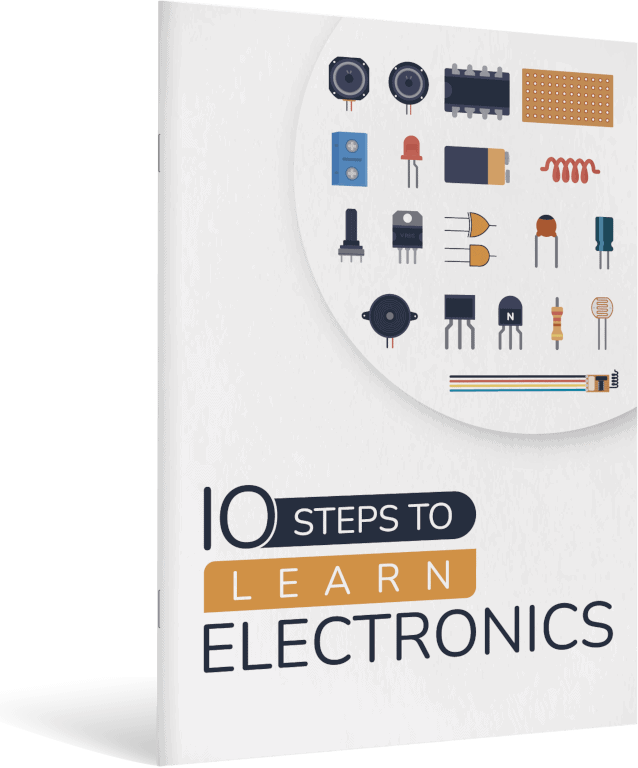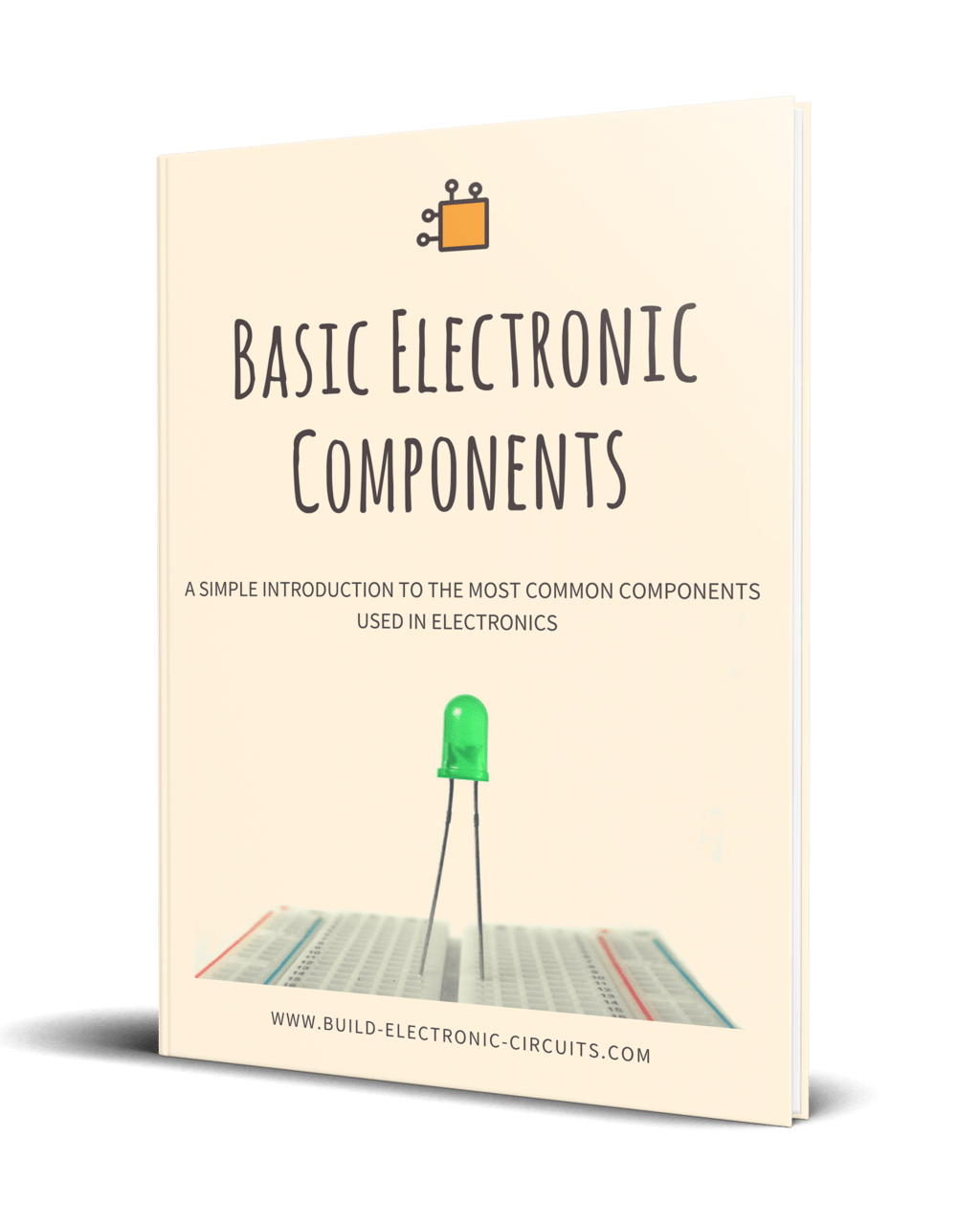A few weeks ago, I went to the library with my wife. I checked out some of the electronics books they had, and something interesting dawned upon me…
First, I have to say that I feel confident in my ability to build pretty much anything when it comes to electronics.
I’ve designed microchips, I’ve designed see-through-wall technology with radar, I’ve designed the prototype for an award-winning coffee roaster, and much more.
But when looking at the books I realized that there is a lot that I don’t know from these books.
A Typical Electronics Book
If you look at some of the most popular books on learning electronics, you’ll see chapters like “Semiconductors”, “Filters”, “Oscillators, “Operational amplifiers”. And when you open up these chapters, you usually find that the topics are explained by using mathematics.
For example, I wanted to see if I could find the easiest way to blink a light according to these books. The reason is that a blinking light was the first circuit I ever learned. So I wanted to see if any of these books would have helped me back when I was starting out.
To blink a light, you need something that turns on and off repeatedly. In electronics, this is called an oscillator.
So, I looked at the oscillator chapter in one of the books I found. And you know what? I did not understand the explanation!

10 Simple Steps to Learn Electronics
Electronics is easy when you know what to focus on and what to ignore. Learn what "the basics" really is and how to learn it fast.
There were boxes with letters in them and conditions about box A needed to be bigger than box B and resonance frequency and whatnot.

I remember learning about these things at university. But I also remember not really understanding them, even though I might have been able to calculate correctly.
It Doesn’t Have to Be That Hard
My understanding of components and circuits have instead come from practical experimentation and looking at what’s going on with the voltage and current in the circuit.
Maybe it means that those topics aren’t really that important to your goal?
What I realized was that many of the topics are not really important. It’s great to have a basic idea around them, but you don’t really need to know how to design a Colpitts Oscillator unless you really want to. You can live a happy life, building advanced electronics without ever learning that.
What is important to learn?
The things that are important to learn are the very basics of electronics – like what the most common components do, and how voltage, current, and resistance behave together. And how to use integrated circuits (important).
When you have those basic things down, practical skills are the most important things to focus on for a while. Learn to put together circuits from a circuit diagram onto a breadboard. Then learn to solder circuits onto prototyping boards (perfboard/stripboard). Then learn to design your own printed circuit board (PCB).
If you know all of the above, then you can build whatever you want.
You might protest: “I know the above and now I want to build an automatic cat feeder – but I have no idea how!”
But this is the life of an electronics designer. You never know how to design something unless you’ve designed it before. You usually have to do some research, read up on new components, and ask for advice.
So that’s what you’ll have to do now.
If you need help, these are all things you’ll get help with as a member of Ohmify.
More Learn Electronics Tutorials

Get Our Basic Electronic Components Guide
Learn how the basic electronic components work so that circuit diagrams will start making sense to you.
